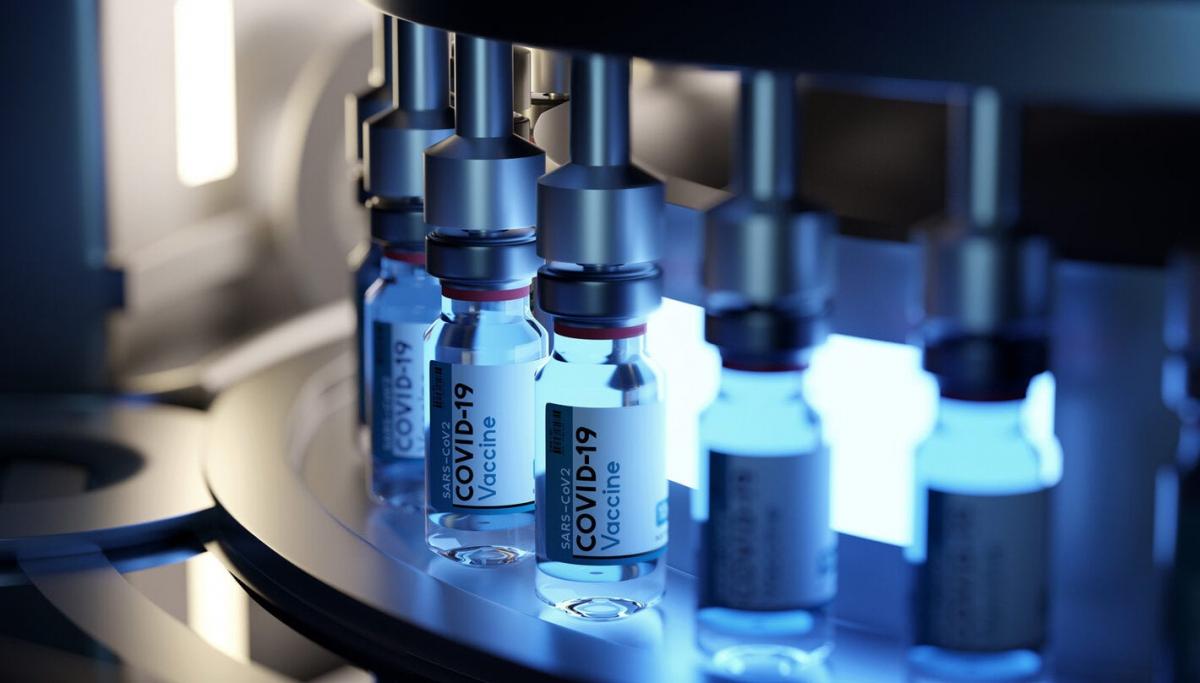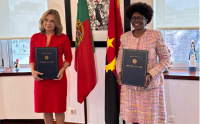PAHO launches new collaborative platform to boost regional production of COVID-19 vaccines

Pan American Health Organization (PAHO) Director Carissa F. Etienne said the severe shortage of COVID-19 vaccines in Latin America and the Caribbean is a “wake-up call” for increased regional production of vaccines and announced the start of a new platform to reach that goal.
“This week, PAHO will launch a platform to boost regional vaccine manufacturing efforts, beginning with the first in a series of meetings to promote greater coordination across countries and to enlist partners from both the public and private sectors to turn this idea into reality,” Dr. Etienne said at her weekly media briefing.
Explaining the drive for the new platform, Dr. Etienne said that “limited production and unequal distribution of vaccines” compromise the region’s pandemic response and “put public health at very high risk.” Reliance on imports makes Latin America and the Caribbean more vulnerable, she added. “Our region imports 10 times more pharmaceuticals than we produce.”
“I believe that the ongoing COVID-19 vaccination crisis must be a wake-up call that we must expand regional pharmaceutical production so we can be in the driver’s seat of our own pandemic responses,” she continued.
On August 27, leaders from global financial institutions, governments, and public health agencies will meet to discuss the platform, which will foster research and incentivize development and manufacture of health technologies.
Dr. Etienne noted that “PAHO is already spearheading initiatives to help reduce our dependency on pharmaceutical imports.”
PAHO is working with the World Health Organization (WHO) and partners to bring the highly effective mRNA vaccine technology into the region. So far, over 30 public and private companies and institutions have expressed desire to take part in the technology transfer, and PAHO is in the “process of identifying the most promising proposals,” she said.
The goal is to take advantage of existing production capacities that could contribute to manufacture mRNA vaccines in the Americas. The principle is that manufacture should benefit the entire region, with regional pharmaceutical production and distribution of the vaccines by PAHO’s Revolving Fund to all countries.
Only about 23% of people in the region have been fully vaccinated, and in many countries, coverage is much lower. “Just as manufacturers adapted quickly to produce some of the PPE and ventilators our region needed earlier in the pandemic, we must bring the same spirit of collaboration into vaccine production in the region,” she said.
Noting that investment is key, Dr. Etienne said the Inter-American Development Bank, the World Bank and other partners have expressed desire to help the region expand its pharmaceutical production.
“The region’s values of Pan Americanism and solidarity can help us strengthen pharmaceutical production,” she said. “The investments we make today will not only help us get through this pandemic faster, but they will also lay the groundwork to deal with future health crises, so we have no time to waste.”
Turning to the crisis in Haiti following the August 14 earthquake, Dr. Etienne said, “PAHO continues to distribute much-needed medical supplies and is working closely with the ministry and emergency teams on the ground.”
“We are also coordinating with the Ministry of Health on the deployment of Emergency Medical Teams,” she said. “So far, seven of these teams have been deployed, four more are due to arrive, and others are on standby.”
Dr. Etienne also covered the pandemic’s deadly trajectory, reporting over 1.5 million new cases and nearly 20,000 COVID-19-related deaths in the Americas in the past week.
The U.S., Mexico, and Brazil reported the highest number of cases. Many Central American countries, including Belize, Guatemala and Honduras are experiencing a rise in COVID-19 infections. Jamaica, Puerto Rico, and smaller Caribbean islands such as Saint Vincent and the Grenadines and Dominica have reported steep increases in new infections and deaths.
“And while hospitalizations are continuing to decrease across much of South America, infections remain high, so we urge countries to continue to stay on top of new outbreaks,” she said.



